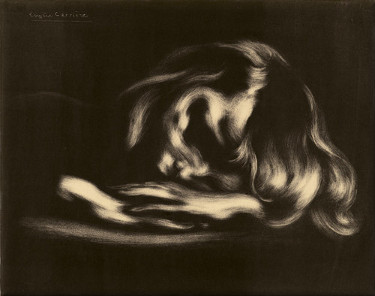Have you had a bad day yet?
 As an ex-user, you should expect to experience bad days. Why? Because everyone has them, including never-users. But when a bad day occurs early in recovery it can become ammunition inside the challenged addict's mind as it searches for any excuse to use.
As an ex-user, you should expect to experience bad days. Why? Because everyone has them, including never-users. But when a bad day occurs early in recovery it can become ammunition inside the challenged addict's mind as it searches for any excuse to use.
Blaming a bad day on recovery would never have crossed our mind if it had occurred the week before ending nicotine use. But now, nicotine's absence becomes a magnet for blame.
Would it ever occur to a never-user to reach for nicotine if having a bad day? It's a thought process peculiar to us nicotine addicts.
As Joel teaches, if the bad day happens during the first week after ending nicotine use then feel free to blame recovery as "it is probably the reason." "But as time marches on you need to be a little more discriminating."
Acknowledge bad days but allow your healing to live.
"Sure there are some tough times," writes Joel, "but they pass and at the end of the day, you can still be free." Staying free means that, "in the greater scheme of things, it was a good day."
If you want to hear about a horrible day, talk to someone who relapsed after having remained clean for a considerable length of time. "They are having bad weeks, months and years," writes Joel. If a smoker, unless they again break free, they will likely face a day when their doctor tells them they now have a serious smoking-related disease.
And imagine all the bad days they'll force loved ones to endure if among the 50% of U.S. adult smokers losing an average of roughly 5,000 days of life.[1]
All this talk about bad days, let's talk about what's really happening. This next paragraph is the "conclusion" from a 2014 study that combined the results of 26 studies that assessed the mental health of smokers and ex-smokers.
"Smoking cessation is associated with reduced depression, anxiety, and stress and improved positive mood and quality of life compared with continuing to smoke. The effect size seems as large for those with psychiatric disorders as those without. The effect sizes are equal or larger than those of antidepressant treatment for mood and anxiety disorders."[2]
Regardless of how we feel, every hour these minds and bodies are allowed to heal is wonderful. Acknowledge the bad while savoring the good.
And the good only gets better. Ahead are entire days where you'll never once think about wanting to use. Just here and now, let the healing continue.

Nightmarish Smoking, Dipping or Vaping Dreams
Stay prepared for highly disturbing dreams of smoking, vaping, or using oral nicotine products. They may be so vivid and so life-like that you'll awaken totally convinced that you've relapsed to using.
Such dreams are normal and expected. Physical healing makes early dreams the most vivid of all.
Picture a horizontal body of a new ex-user as they sleep during the early days of recovery. Mouth and throat tissues suddenly begin healing and re-sensitizing after years of being deeply marinated in nicotine, flavorings, or toxin rich tobacco tars.
If a recovering smoker, picture the sweeper brooms lining lung bronchial tubes (your cilia) quickly regenerating and beginning to sweep mucus and tars up to the back of your throat. Add to that, rapidly healing and substantially more sensitive senses of smell and taste.
Now, throw a dream into the mind of this horizontal healing body and presto, the odors, juices, smells and tastes come to life. They are remnants of use and real. What better proof could we possibly sense of the amazing healing happening within? And it isn't unusual to experience more than one use dream.
The dreams that seem to cause the most concern are those that occur later in recovery, weeks, or even months after full acceptance that this time is for keeps.
Although nearly always described as a "nightmare," they are sometimes mistaken by the ex-user as a sign that, deep down, they want to start using again.
It's here that we point out the obvious conflict. If a nightmare and not real, then why would any rational person want to invite their nightmare to become a real and destructive part of daily life? As Joel notes, seeing smoking as a nightmare is a healthy sign.
We need to begin worrying when we start liking such dreams. Should that occur, it's likely a sign that complacency has arrived, that your recovery is in need of remembering and accurately recalling what it was like to devote a portion of every waking hour of every day to feeding a mandatory chemical need.
And as for having smoking dreams long after ending use, such dreams are normal, yet not nearly as vivid as during the first week or so.
We can no more erase from our mind our thousands of old nicotine use memories than we can our name. They reflect who we once were. What's amazing is that such dreams happen so infrequently.
References:
2. Taylor G et al, Change in mental health after smoking cessation: systematic review and meta-analysis, British Medical Journal, 2014; 348: g1151.
All rights reserved
Published in the USA
